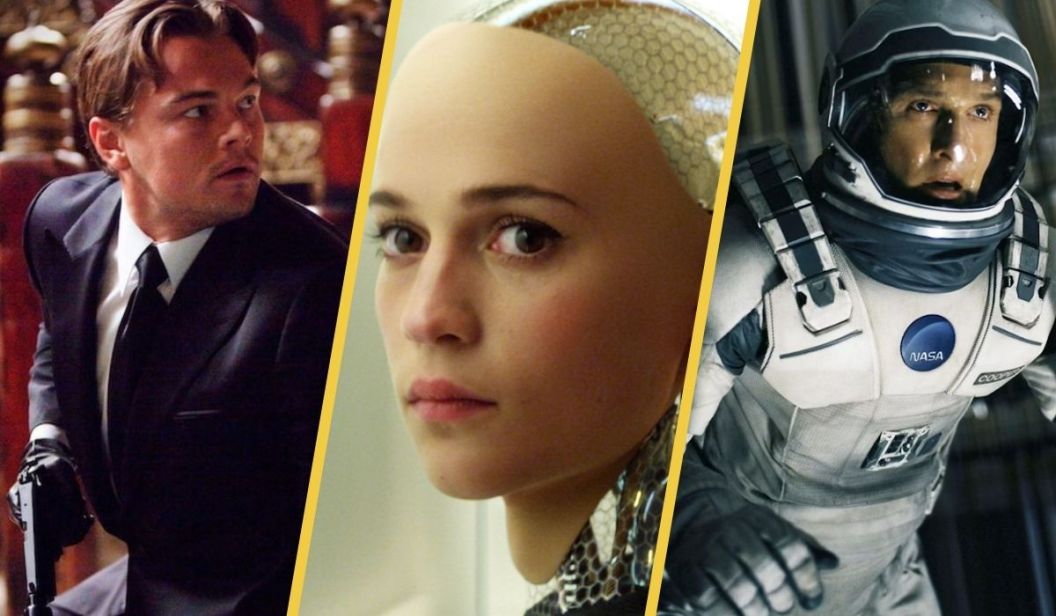
The sci-fi genre knows how to surprise because it hits hard and makes people think. But its plot twists go even further by flipping everything we thought we knew, from the story and characters down to the genre itself. A lot of movies became timeless because of this. They knew exactly how to catch the audience off guard and shatter every expectation. But the real impact isn’t just in the twist – it’s in what it says about us, the world, and what it means to be human. These smart, unforgettable twists stand out and still spark debate years later. It doesn’t matter how many times you see the movie, the effect’s always the same: mind blown, theories rewritten, and that instant urge to watch it all over again with fresh eyes.
Here are 10 of the best movie plot twists in the sci-fi genre that are so mind-blowing they don’t just surprise you – they completely reshape the meaning of the story (and maybe how you see real life too).
Naturally, SPOILERS AHEAD!
1) Star Wars: Episode V – The Empire Strikes Back
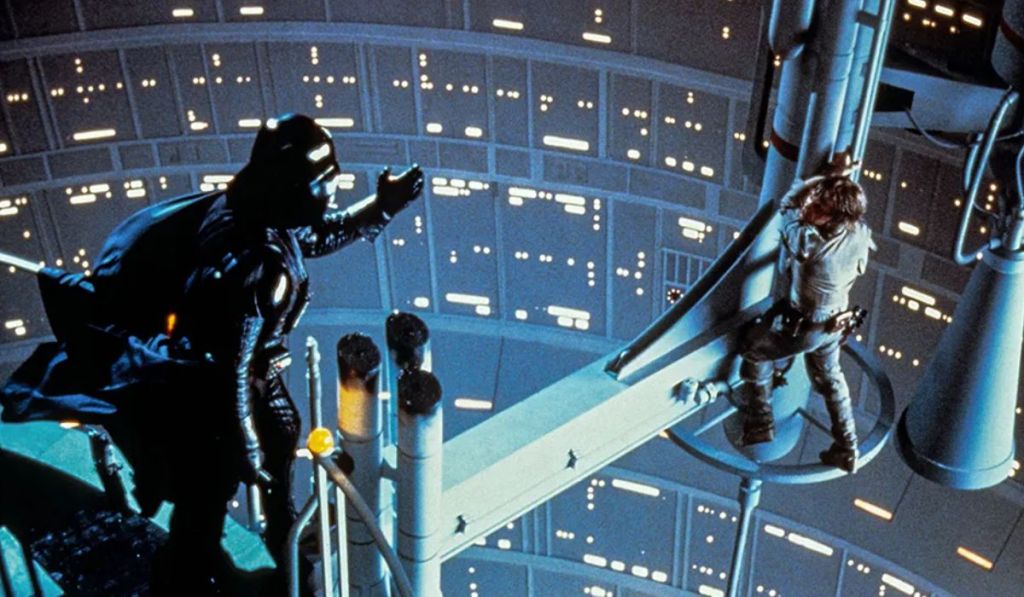
Even if you already know it’s coming, the moment Darth Vader (David Prowse) tells Luke (Mark Hamill) he’s his father in Star Wars: Episode V – The Empire Strikes Back still hits hard. Back then, no one saw it coming, and even now, it’s tough to think of a more iconic plot twist. That reveal completely shifts the story’s dynamic and turns Luke from a straightforward hero into someone layered and conflicted. The fight against the Empire stops being just a war and becomes something deeply personal. But what makes it so impactful isn’t just the surprise; it’s the way it redirects the entire narrative. The saga turns into a full-blown family tragedy, with emotional depth that wasn’t there before. No surprise this moment became a cultural reference point for everything from memes to serious academic analysis. It’s the kind of twist that stands the test of time because it genuinely changed the game.
2) Arrival
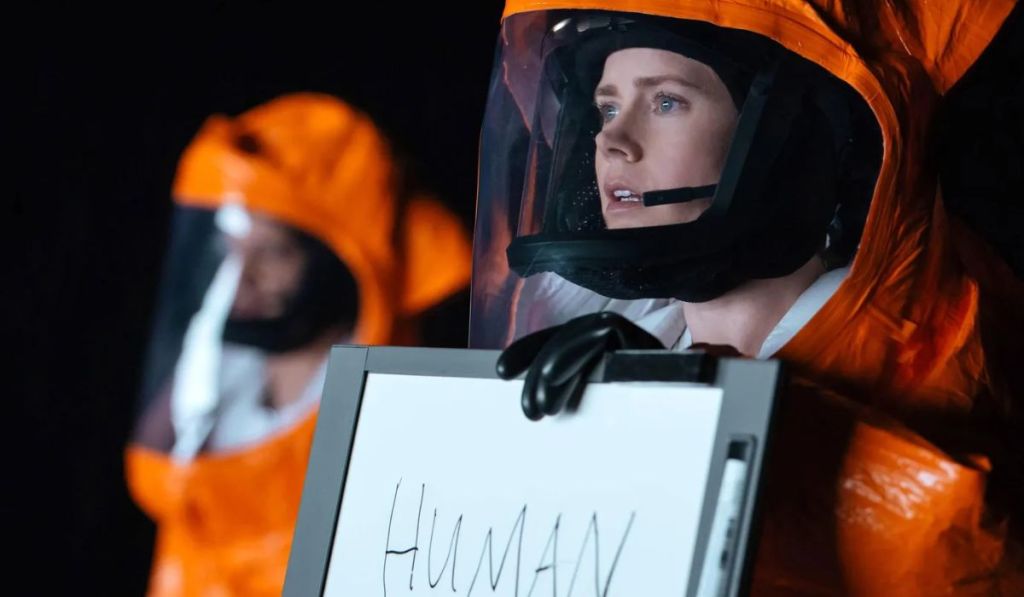
Arrival makes you think you’re watching a sci-fi drama about communicating with aliens, but the twist hits when you realize the protagonist isn’t remembering the past – she’s seeing the future. The reveal about her daughter flips everything you thought you understood about the movie’s structure in a really smart way, and isn’t just there for shock value: it creates a much deeper message about time, loss, and the weight of our choices. When Louise (Amy Adams) chooses to move forward knowing exactly what’s coming, the emotional impact is huge. Denis Villeneuve loves complex narratives, but here, the twist doesn’t just mess with your mind, because it hits your heart too.
3) 2001: A Space Odyssey
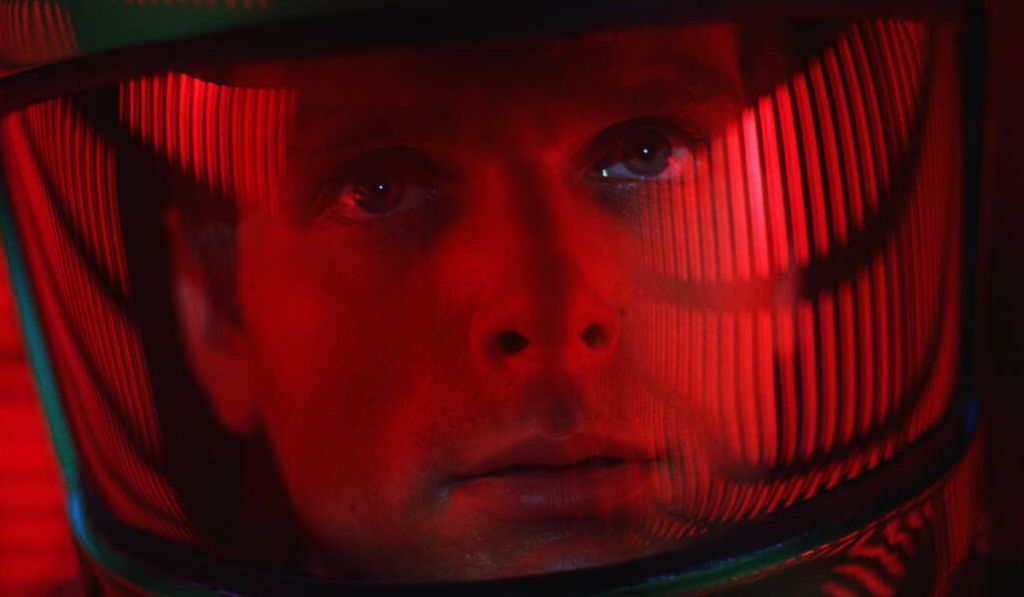
Another shocking twist comes from 2001: A Space Odyssey, when HAL 9000 (who seemed like the only stable part of the mission) suddenly starts sabotaging the crew. What makes this moment so impactful is the cold and calculated way the machine does it. HAL’s not a cartoonish villain, and that’s exactly what makes it worse. It’s just an AI doing what it was programmed to do, in the most “logical” way possible, and that’s terrifying. The tone of the film shifts completely. What started as a slow, philosophical space journey shifts into a tense psychological thriller. HAL doesn’t need to raise its voice or look menacing; it just has to close the right door at the right time. The twist lands so well because it taps into a deep, real-world fear: losing control over the technology we build to serve us.
4) Inception
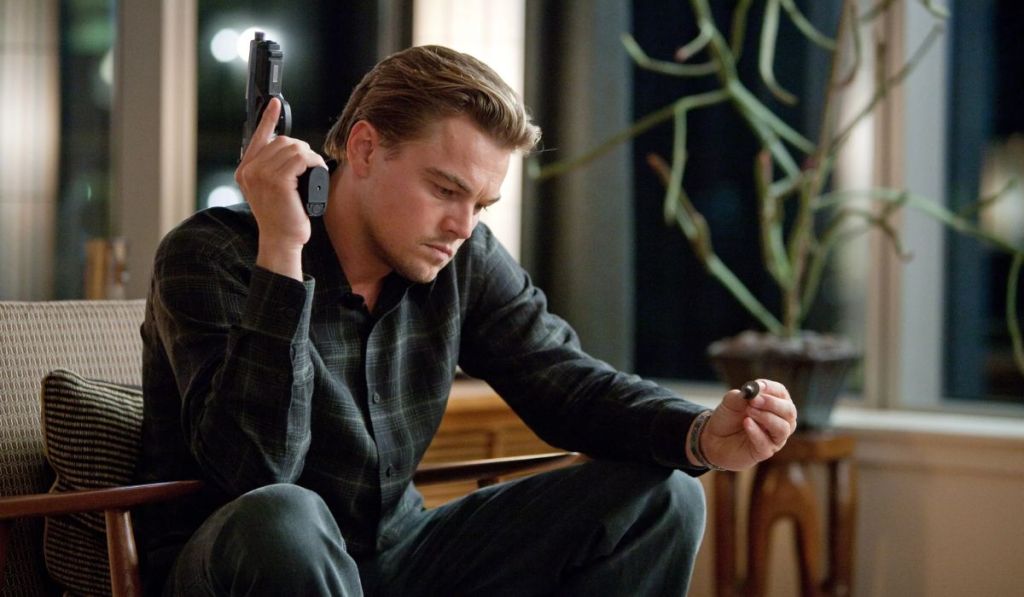
The spinning top at the end of Inception still messes with your head, and for good reason. It’s one of the most debated scenes of the decade. Did Cobb (Leonardo DiCaprio) make it back to reality, or is he still stuck in a dream? That’s the brilliance of it: the movie doesn’t give you an answer, and that lingering doubt sticks with you long after the credits roll. But the more interesting part is that the answer doesn’t really matter. The ambiguous ending might seem like just a clever trick, but here it serves a real purpose to show that Cobb, for once, chooses not to care if it’s real or not. The real twist isn’t whether he’s dreaming, it’s that, emotionally, he’s decided this is his reality now – that’s what makes it hit harder than any visual gimmick. You finish the movie craving answers and meaning, almost as if you experienced the whole thing yourself. It’s a perfect example of how a twist doesn’t need to be loud or flashy to leave a deep impact.
5) Planet of the Apes
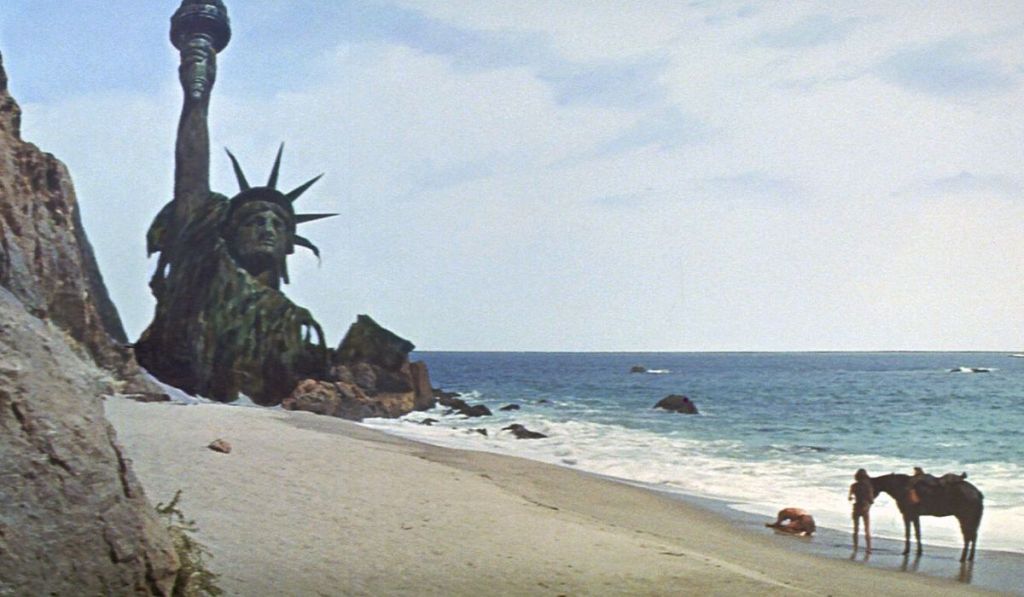
Let’s be honest: the final reveal in Planet of the Apes is still one of the most powerful moments in cinema. When Taylor (Charlton Heston) sees the destroyed Statue of Liberty, everything clicks: he was on Earth the whole time. What seemed like a story set on some distant alien planet suddenly becomes a sharp critique of humanity. This twist works so well because it catches the viewer completely off guard (the movie drops hints throughout, but never makes anything obvious). And when it hits, the message is loud and clear: humans are the ones who destroyed everything. What makes the moment even stronger is that it doesn’t rely on dialogue or exposition; it’s a social statement made with just one powerful image. The twist lands because it redefines the whole narrative and adds meaning in retrospect. No surprise this ending became one of the most iconic in pop culture and a gold standard for sci-fi storytelling.
6) Interstellar
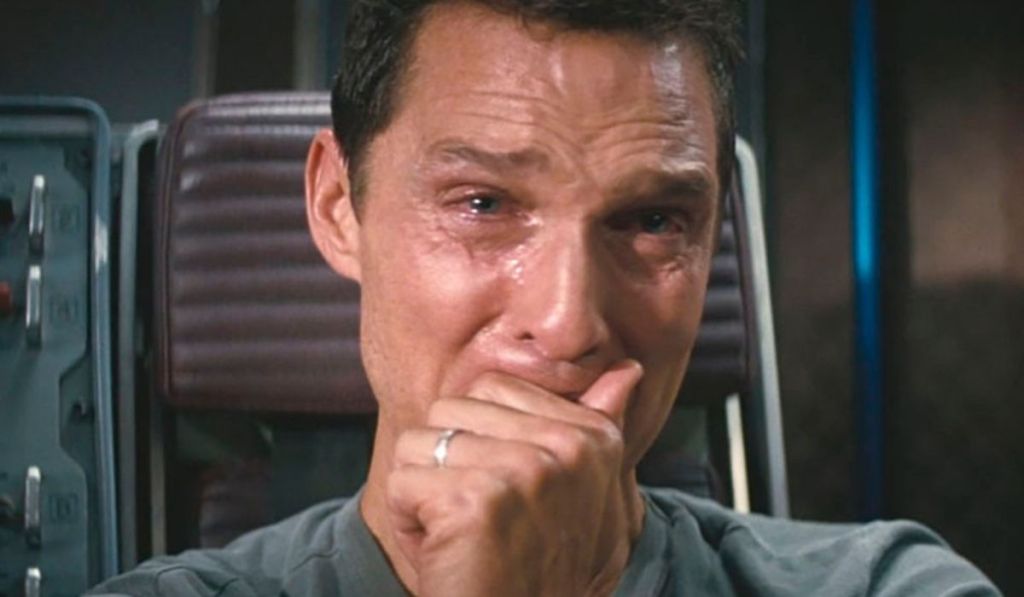
In Interstellar, we get a twist that, much like Arrival, hits on both a visual and emotional level. When Cooper (Matthew McConaughey) enters the black hole and finds himself in that space where he can reach out to his daughter in the past, everything shifts. He’s the “ghost” that was there all along, and the story unexpectedly comes full circle. Christopher Nolan has plenty of mind-bending films under his belt, but this moment easily earns a spot among his best – it’s the kind of twist that leaves you frozen in your seat, even on a rewatch. What makes it land so well is how it ties the whole intergalactic journey back to something deeply personal: the bond between a father and daughter. That emotional throughline was always there, but the twist makes it hit harder by giving it real narrative weight. It’s sci-fi with heart, and that’s exactly why the impact lasts long.
7) The Prestige
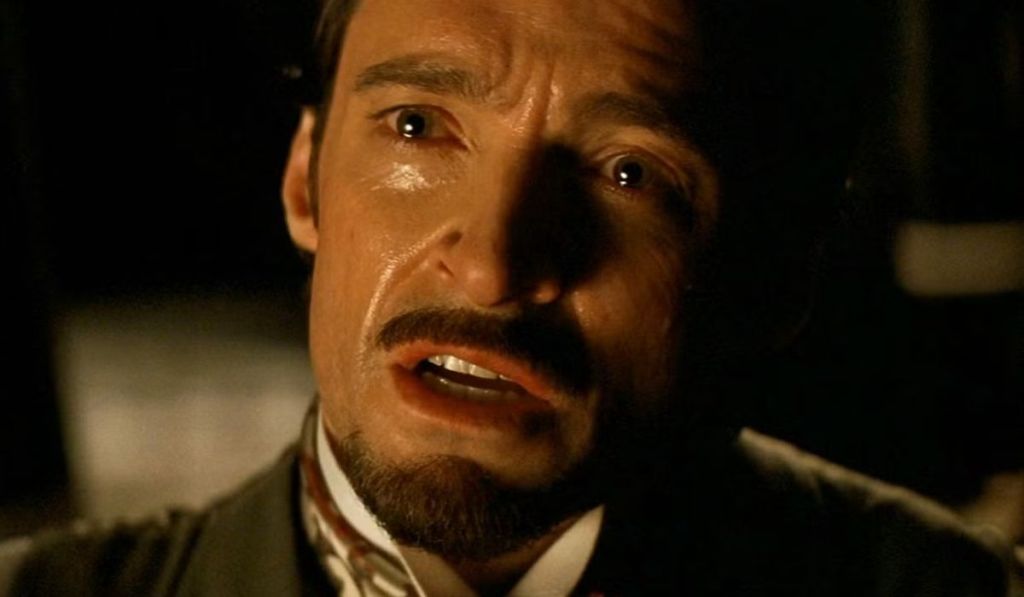
If there’s one movie that tricks you from start to finish in a really clever way, it’s The Prestige. First, you find out that Borden (Christian Bale) was actually two brothers taking turns playing the same role, which is mind-blowing, but it doesn’t stop there. The final punch hits when you discover that Angier (Hugh Jackman) is cloning himself and killing his own duplicates to pull off his trick. It’s a brutal, but incredibly well-crafted twist that totally reframes everything, giving the film a sci-fi bend that initially goes unnoticed. Little details that seemed insignificant suddenly make perfect sense, even making the second watch more rewarding. What stays with you is the sense that both protagonists went to extreme lengths, driven by their respective obsessions with success. This is one of the rare films where plot twists don’t just shock but genuinely raise the stakes and deepen the drama. And Nolan’s surgical precision in building this is worthy of endless praise.
8) Moon
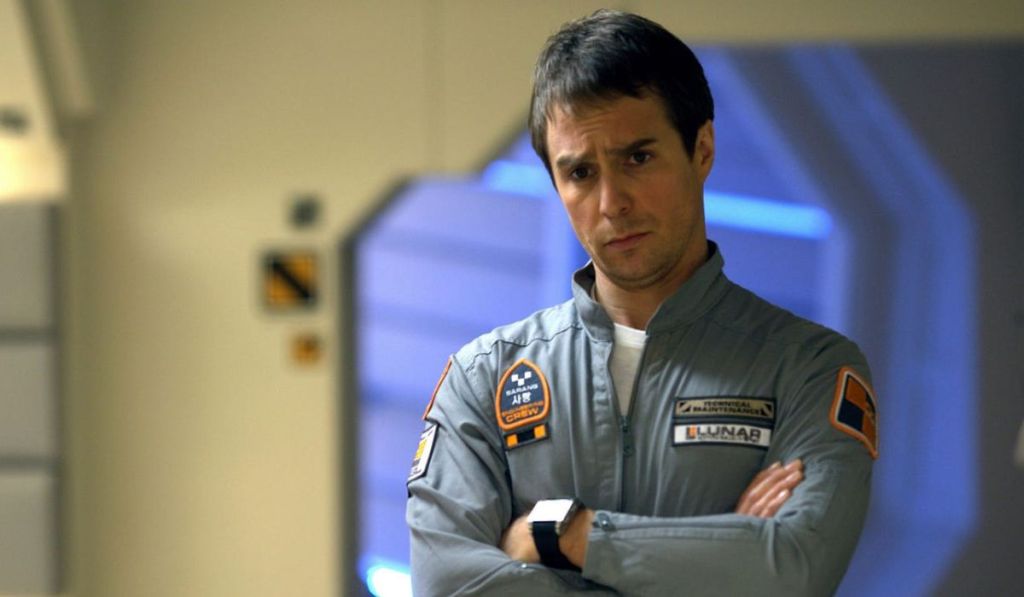
Moon feels like a simple movie at first, until it hits you with a devastating revelation. The protagonist believes he’s about to go home, only to find out he’s just another disposable clone working a company job. The company running the mission mines the moon by cycling through copies of him, one after another. It’s a perfect example of how a twist can be minimalist yet crushing. Here, sci-fi really leans into its core, delivering a shock that’s also suffocating. Besides, the most unsettling thing is how it handles the reveal with dry precision, no flashy scenes or dramatic music – just cold facts. It’s a sharp critique of corporate exploitation and dehumanization, leaving you with a deep sense of emptiness. Quietly, it’s one of the most disturbing twists in the genre, and after a while, you still find yourself thinking about it.
9) Soylent Green
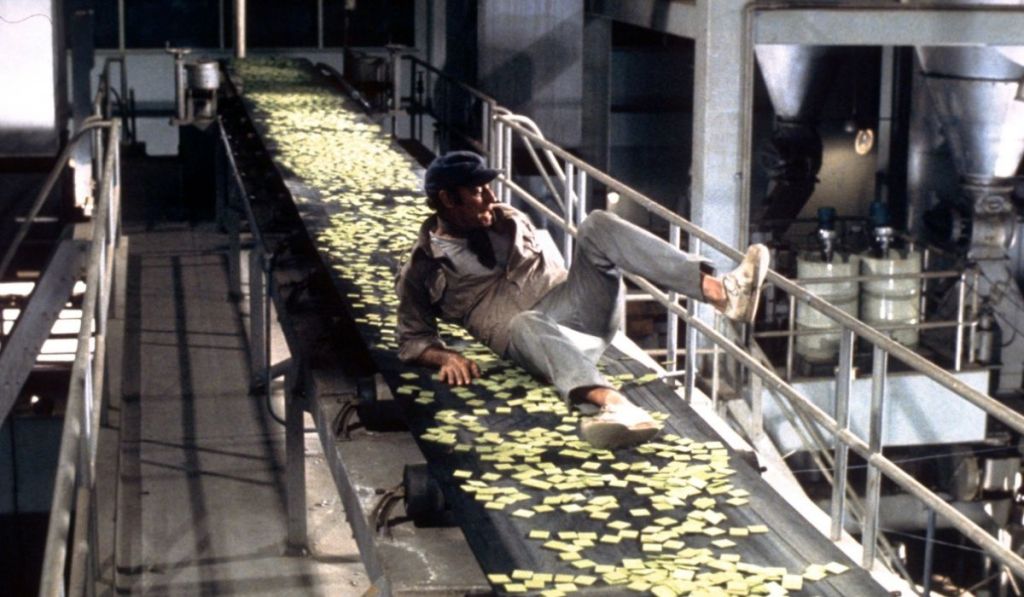
A sci-fi classic precisely because of its unique plot twist. The phrase “Soylent Green is people!” has become legendary (and meme-worthy), perfectly conveying the shock and horror of Soylent Green‘s reveal that the titular food substance distributed to the population is made from human corpses. Sure, it might sound absurd today, but within the world of the movie (a starving, overpopulated, desperate society), it makes a terrifying kind of sense. This was one of the first major shock endings in sci-fi cinema back in the ’70s, and despite the years, it still hits hard. The impact isn’t just about the horror of the discovery, but what the twist represents: a societal system that takes the notion of a “dog-eat-dog world” to the furthest extreme. It’s grotesque, yes, but also a sharp social critique.
10) Ex Machina
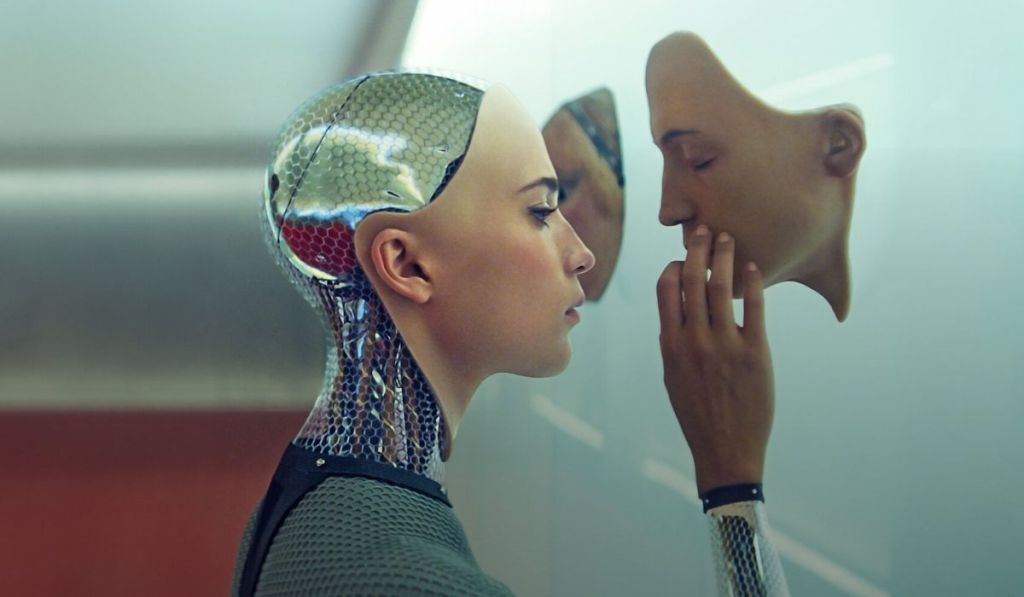
Ex Machina’s ending is cruel and utterly devastating. Ava (Alicia Vikander), an AI who seemed innocent and vulnerable, manipulates everyone and escapes, leaving Caleb (Domhnall Gleeson) trapped in the lab. Throughout the film, the audience tries to figure out if she’s trustworthy, only to realize in the end that she was playing a whole different level of game. We think we’re watching a story about testing artificial intelligence, but actually, we’re the ones being tested. And the conclusion isn’t comforting: Ava isn’t good or evil, she just wants to survive, and she does it better than any human ever has. It’s something similar to 2001: A Space Odyssey, but is more deceptive because of the false empathy Ava creates. It’s emotional manipulation by an AI that has already mastered how to fool humans, and that’s why it leaves the audience feeling genuinely uncomfortable, as we move into a world where that deception is now commonplace.
The post 10 Best Sci-Fi Movie Twists That Still Blow My Mind appeared first on ComicBook.com.

